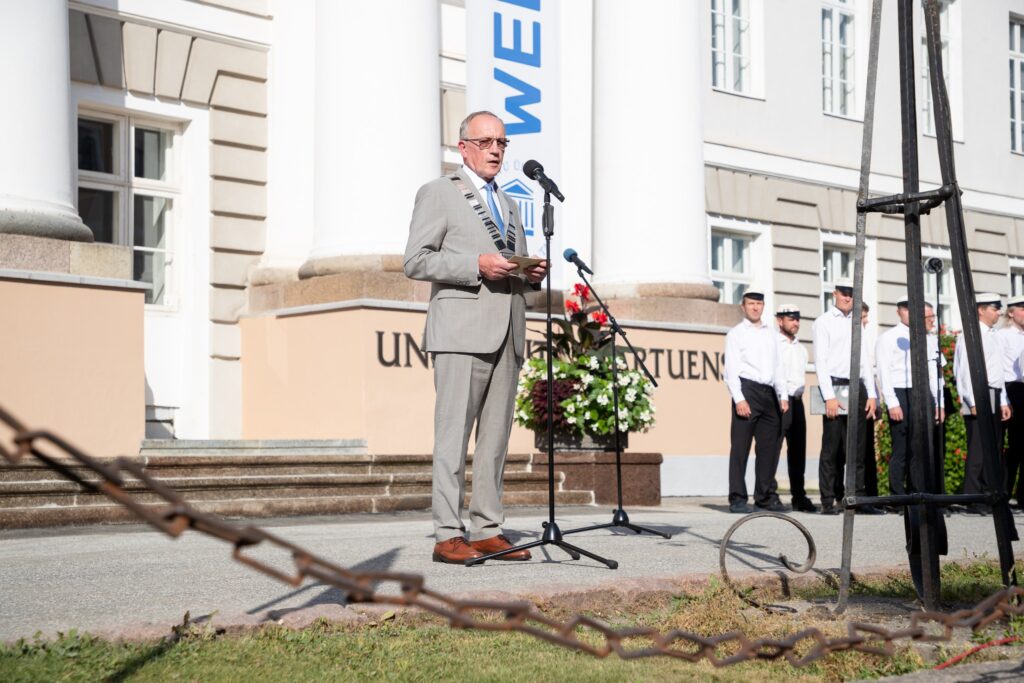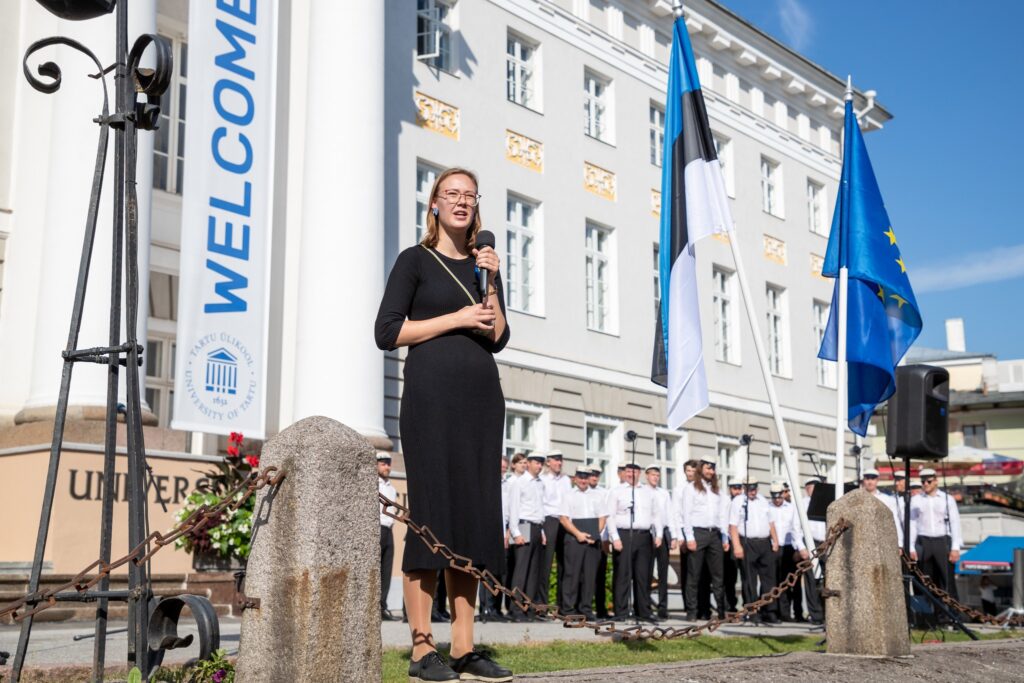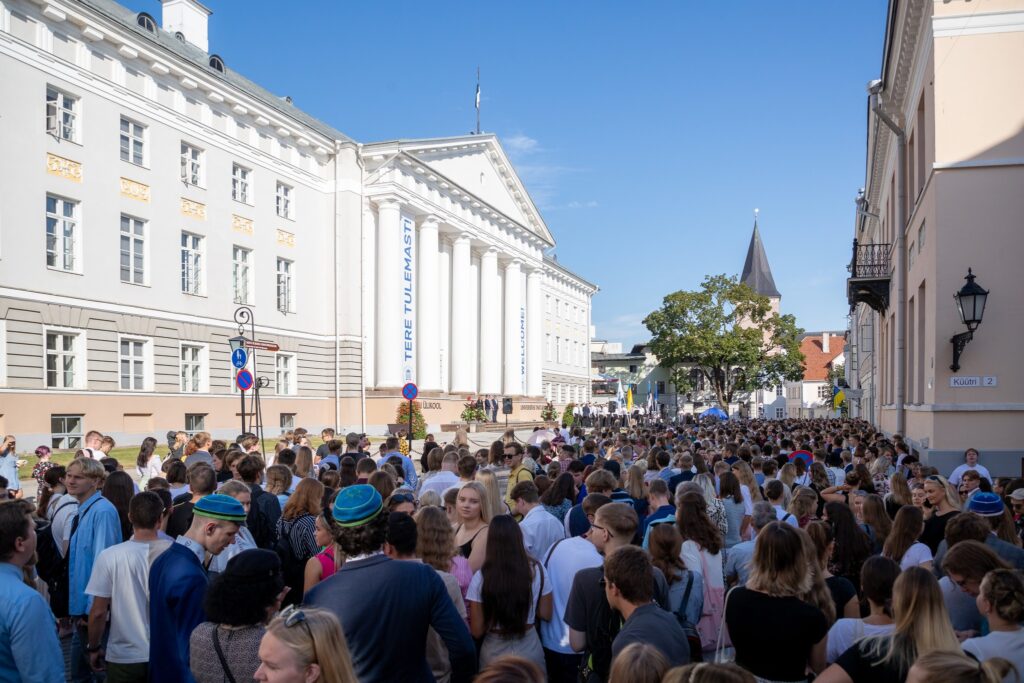The ceremonial speeches at Estonia’s oldest and best university’s opening ceremony for the 2022/2023 academic year on 29 August underlined a brutal truth – Estonia’s higher education funding is in crisis.
This autumn, 4,530 new students start their studies at the University of Tartu, including 2,757 at the first level of higher education, 1,608 in master’s studies and 165 pursuing doctoral degrees. In total, there are 15,210 students at the University of Tartu, including 9,260 at the first level of higher education, 4,720 in master’s studies and 1,230 in doctoral programmes.
At the start of the academic year, on 29 August, thousands of students were greeted during a traditional ceremony by the university’s rector Toomas Asser and the country’s education minister Tõnis Lukas, to the dulcet tunes of the Tartu Academic Male Choir.

But this year, the opening ceremony took a more sombre tone than usual due to the ongoing crisis surrounding higher education funding in the country. The university estimates that one-third of necessary funding is absent – and suggests that successive Estonian governments are responsible for not increasing higher education funding.
“You will hopefully invest at least five years of your life in university studies. Not only to provide a good life for yourself but also for a smart and healthy society. This is a big and expensive investment. Thus, also demand that your co-financer, the Estonian government, contribute to that process so that you can dedicate yourself to your studies,” Asser said in his speech to the students.
“If you look at the main building behind me, we could figuratively say that although we stand before six pillars, the university has money for only four of them. One-third of funding is missing. We lack the money we need for providing a good-quality education and supporting our students financially. Make your voice heard and speak along about what the Estonian government and all the ruling parties can do to support you so that you would get high-quality higher education and that your today’s enthusiasm to study and make the world a better place would last even after you get your first rental bill,” he added.

Forced into survival mode
The president of the university’s student union, Katariina Sofia Päts, echoed the sentiment in her speech.
“The enthusiasm and joy of the new beginning today are unfortunately overshadowed by a dark cloud hovering above Estonian higher education. Please look at the persons to your right and your left. The reality is that there is no real resource to teach one of the three of you today. Our alma mater does not grow and flourish but is forced into survival mode instead,” she said.
“In these conditions, we are no visionaries of tomorrow but beggars instead. As it seems that words have lost meaning, please help me get the message across and let us all jingle the coins like real beggars. Let us show that a good-quality higher education and study support system are not a luxury but the basis of our society. Dear politicians, soon it is time for you to bear responsibility for Estonia’s future. It is your chance and responsibility to give us the best tools possible to take care of this future,” Päts added.

The debates between Estonian political parties on how to best fund higher education are dragging along and no firm decisions have been made. Moreover, ongoing security and energy concerns – following the Russian invasion of Ukraine – are further diminishing the importance of education funding in the eyes of many political decision-makers.
The universities are hoping, however, that the upcoming Estonian parliament election, due to take place in March 2023, will motivate the political class to come up with better ideas on how to solve the higher education funding crisis.

